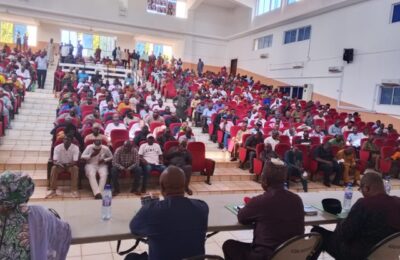There has been a lot of buzz recently in Nigeria about the proposed change in the education system, from the current 3-3-3-3-4 system (which is 3 years junior primary,3 years senior primary, 3 years junior secondary and 3 years senior secondary and 4 years university) to a new 12-4 system (which is 12 years basic and 4 years university).
The federal government is considering implementing this change and it has sparked both excitement and debate among citizens. But what exactly does this new system entail and how does it compare to the current one? Let’s take a closer look.
Firstly, it’s important to understand what the numbers in the current and proposed system represent. The 3-3-3-3-4 system refers to the number of years spent in primary, junior secondary, senior secondary, and tertiary education respectively. This means that a student would spend 12 years in total in the education system before entering university. The new 12-4 system, is 12 years basic and 4 years university system of education.
One of the main advantages of the 12-4 system over the current one is the additional year of secondary education. This extra year is considered crucial in bridging the gap between the basic education received in primary school and the more specialized education in university. It also provides more time for students to develop important skills and interests, and to make informed decisions about their future career paths.
Another benefit of the 12-4 system is that it aligns with the global standard. Many developed countries have a 12-year basic education and 4-year university system, which may make it easier for Nigerian students to compete on an international level. This could potentially lead to more opportunities for higher education and employment in other countries.
Additionally, the new system could also address the issue of overcrowding in universities. With an extra year of secondary education, it is expected that there would be a decrease in the number of students seeking admission into universities, resulting in a more balanced student-to-faculty ratio and a better quality of education.
However, there are some concerns about the implementation of the 12-4 system. One of the main concerns is the cost implications for both the government and families. This could potentially make it difficult for some families to afford the additional year of secondary education and the cost of university education. It is important for the government to address these concerns and provide necessary support to ensure that education remains accessible to all.
In conclusion, the proposed 12-4 system of education in Nigeria has the potential to improve the quality of education and make Nigerian students more competitive globally.
However, it is important for the government to carefully plan and address any potential challenges in order to ensure a successful implementation.
Education is the foundation for a better future, and it’s crucial that this change is made with the best interest of students in mind. Only time will tell if the 12-4 system will be a positive step forward for Nigeria’s education system.
– Benjamin Ibrahim, a Retired Permanent Secretary, writes from Lokoja.




